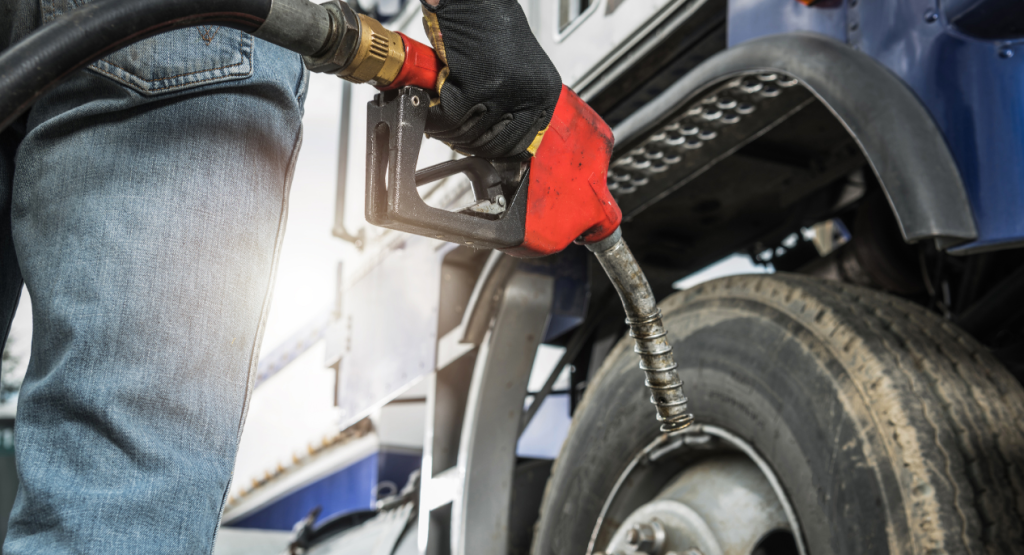Fuel Efficiency Strategies for Truck Drivers
June 07, 2024

Why Fuel Efficiency Matters
If you’re a truck driver, you know just how important fuel efficiency is. It’s not just about saving money; it’s about staying competitive in an industry where every mile counts. Whether you’re a seasoned trucker or an aspiring driver studying for your CDL, understanding and implementing fuel efficiency strategies can make a significant difference in your bottom line and reduce your environmental footprint.
Factors Affecting Fuel Consumption in Commercial Trucks
Before we jump into the tips, it’s crucial to understand what affects fuel consumption. Here are some key factors:
Aerodynamics
It might be hard to believe, but the shape and design of your truck can significantly impact fuel efficiency. Trucks with poor aerodynamics face more air resistance, which means the engine has to work harder, consuming more fuel.
Weight
The heavier the load, the more fuel your truck will consume. It’s simple physics—the engine needs to exert more power to move a heavier object.
Driving Habits
Your driving style has a direct impact on fuel efficiency. Aggressive driving, frequent speeding, and unnecessary idling can all lead to higher fuel consumption – not to mention the danger these driving practices pose to you and others on the road.
Maintenance
A well-maintained truck runs more efficiently. Neglecting regular maintenance checks can lead to engine problems, decreased fuel efficiency, and even breakdowns on the road. A truck driver is only as good as their truck.
Practical Tips for Maximizing Fuel Efficiency
1. Smooth and Steady Driving
Aggressive driving—rapid acceleration, hard braking, and speeding—can drastically reduce fuel efficiency. Aim for smooth and steady driving. Use cruise control when possible to maintain a consistent speed and save fuel.
2. Regular Vehicle Maintenance
Regular maintenance is crucial for keeping your truck in optimal condition. Pay attention to:
- Tire Pressure: Under-inflated tires can increase rolling resistance and reduce fuel efficiency.
- Engine Tuning: A well-tuned engine runs more efficiently and consumes less fuel.
- Oil Changes: Regular oil changes ensure that the engine lubricates properly, reducing friction and improving efficiency.
- Air Filters: Clean air filters ensure the engine receives the proper amount of air, improving combustion and fuel efficiency.
3. Optimize Load Management
Proper load management can also contribute to better fuel efficiency. Ensure your load is evenly distributed to reduce drag and improve stability. Avoid carrying unnecessary weight, as it forces the engine to work harder.
4. Aerodynamic Enhancements
Consider investing in aerodynamic enhancements like side skirts, fairings, and roof deflectors. These modifications can reduce air resistance and improve fuel efficiency by up to 10%.
5. Reduce Idling
Unnecessary idling wastes fuel and adds wear and tear to your engine. Turn off the engine if you’re going to be stationary for more than a few minutes. Modern trucks also come equipped with anti-idling technology that can be very effective.
6. Plan Efficient Routes
Planning your routes can save both time and fuel. Use GPS and route-planning software to find the most efficient paths. Avoid high-traffic areas and construction zones where possible.
The Financial and Environmental Benefits
Improving your fuel efficiency isn’t just good for your wallet—it’s also great for the environment. Here’s how:
- Cost Savings: Fuel is one of the biggest operational expenses for truck drivers. By implementing these strategies, you can save thousands of dollars annually.
- Environmental Impact: Reducing fuel consumption means fewer emissions, contributing to cleaner air and a healthier planet.
- Extended Vehicle Life: Efficient driving and regular maintenance can prolong the life of your truck, reducing the need for costly repairs and replacements.
Learn About Becoming a Truck Driver
Fuel efficiency is a win-win for truck drivers. It saves money, benefits the environment, and can even extend the lifespan of your vehicle. Whether you’re a seasoned driver or just starting your CDL training, implementing these practical tips can make a significant difference.
Ready to take control of your career? Learn more about fuel efficiency and other essential trucking skills at ProDriverU. Sign up today and become an efficient, knowledgeable, and successful truck driver.
Related Posts

“Should I Be A Truck Driver?” Decide if Driving is the Right Career for You
December 23, 2022
Do Your Research! Since you probably won’t have an opportunity for experiential learning before going out on the road
Read More
5 Safe Driving Tips for Bad Weather
Whether you are driving a car, a motorcycle, or an 18-wheeler, one of the scariest situations is driving during
Read More
Hitting the Road: Embracing the Adventure as an Over-the-Road Truck Driver
May 15, 2023
Welcome, future road warriors! Are you ready to take on the open road and embark on an exciting new
Read More